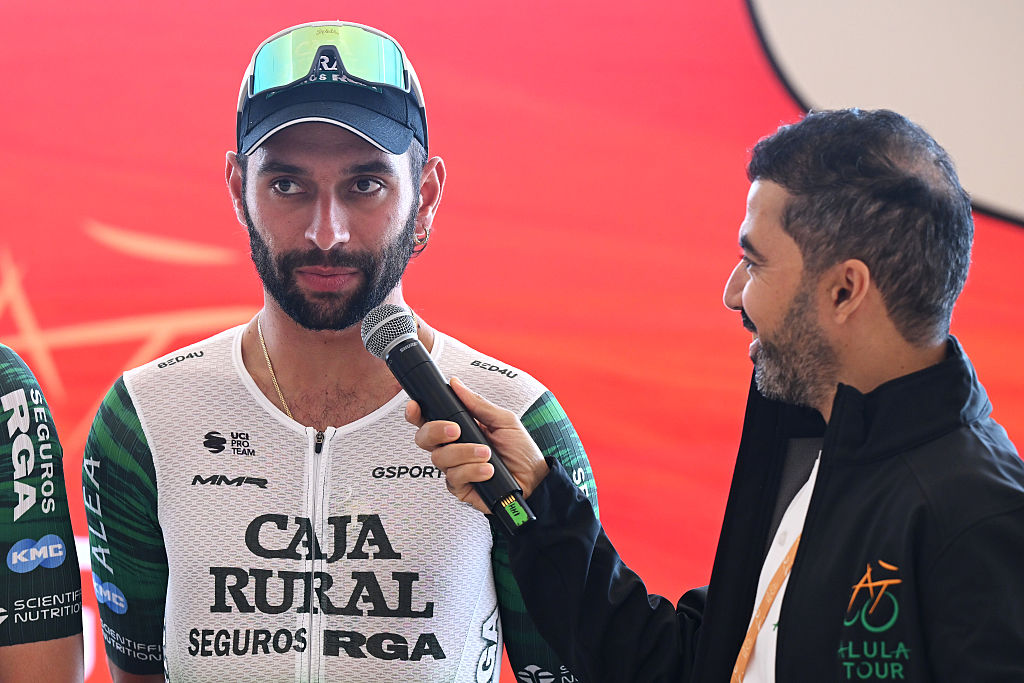Bettiol: I never won a race, why should I win the Tour of Flanders?
Italian defies Flanders Classics head's prediction to claim surprise victory in the Ronde
The latest race content, interviews, features, reviews and expert buying guides, direct to your inbox!
You are now subscribed
Your newsletter sign-up was successful
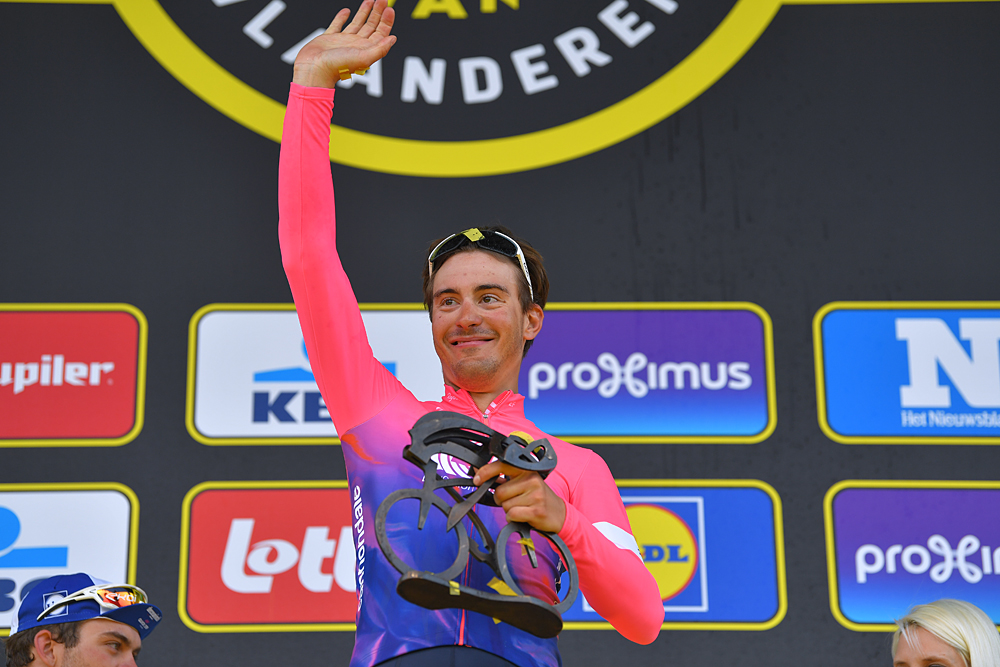
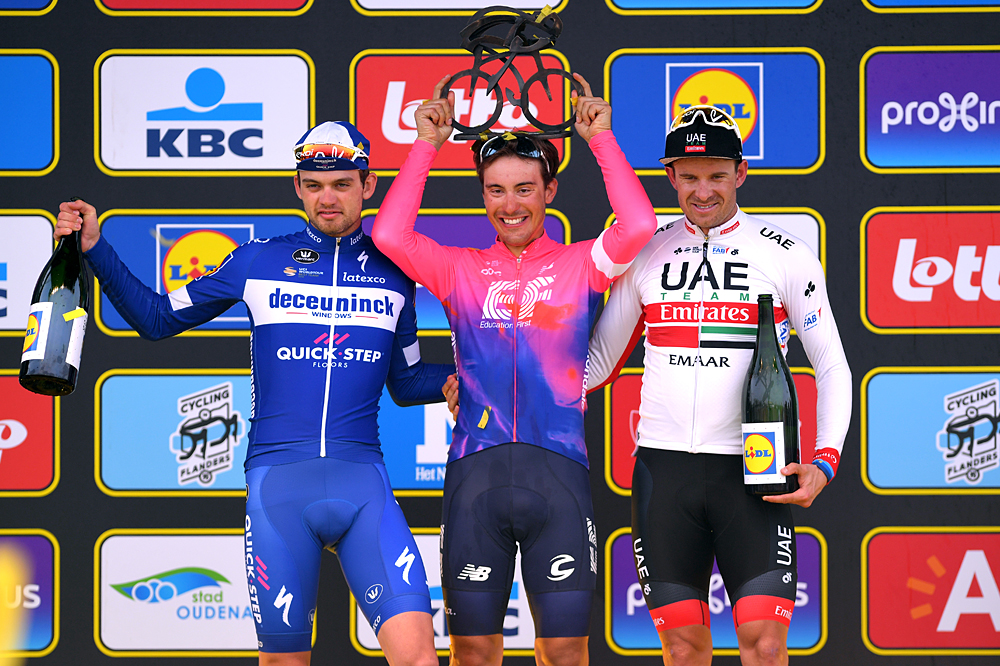
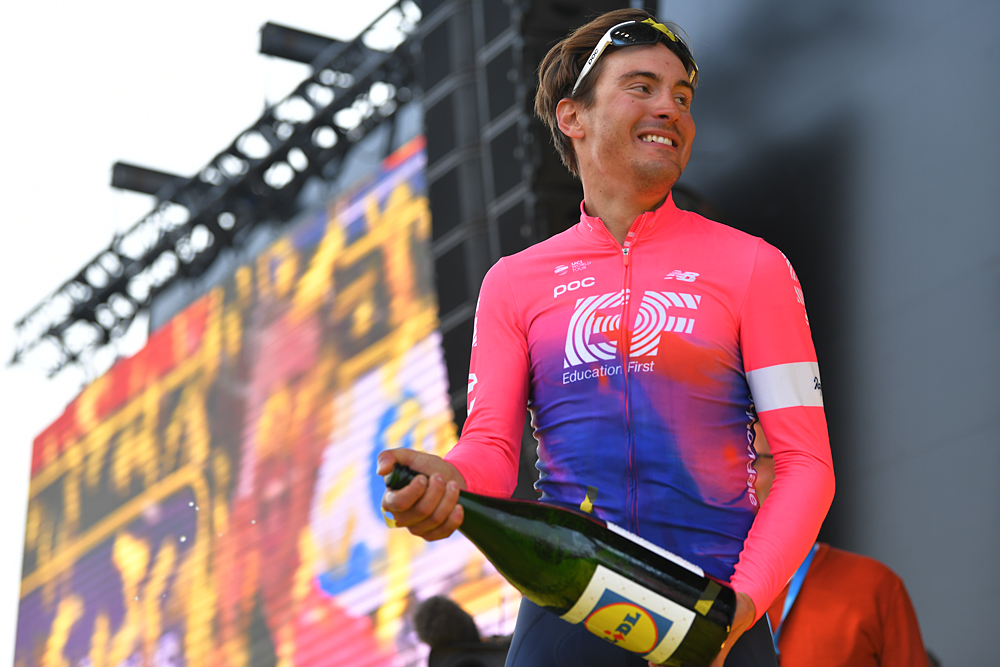
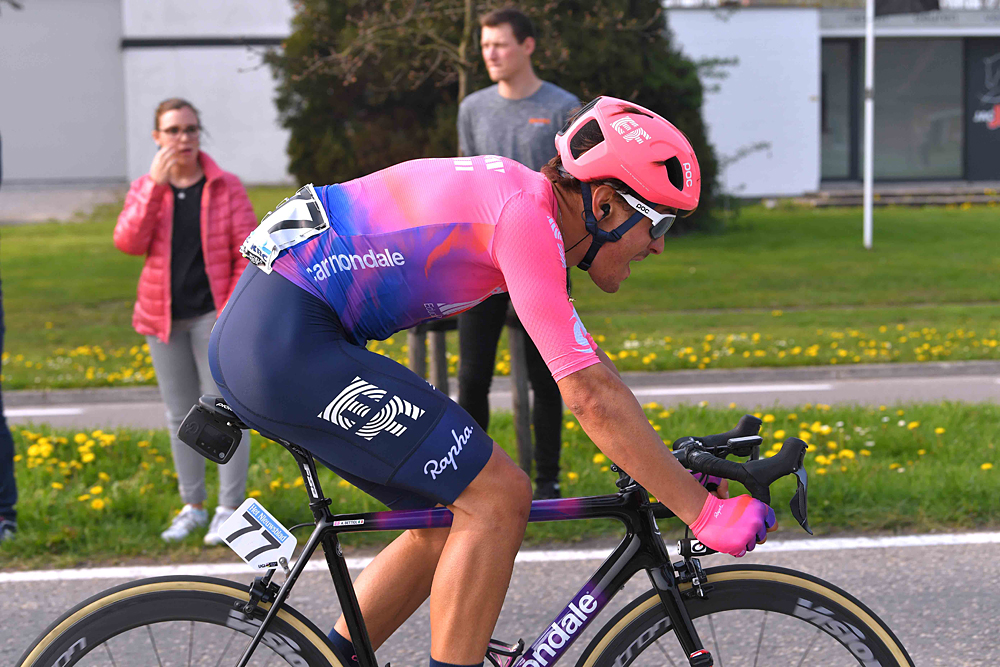
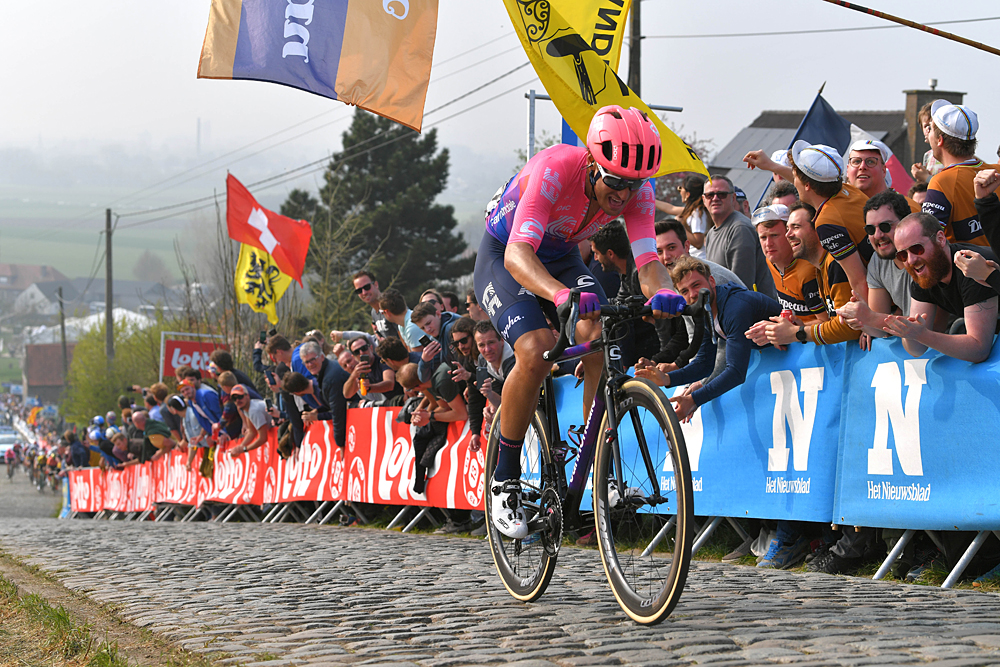
When Alberto Bettiol (EF Education First) swung left at the top of the Paterberg clutching a lead of 20 seconds, a creeping hush seemed to descend upon the crowds who were following the closing stages of the Tour of Flanders on screens in Oudenaarde's main square.
An acceleration from Greg Van Avermaet (CCC) over the other side briefly caused home spirits to rally, but as Bettiol maintained his advantage on that interminable run-in, the party atmosphere, from a Flemish standpoint at least, deflated into something more anxious.
All week long, the scene had been set for a clash between names familiar to Flemish fans. Two distinct schools were supposed to battle on the final lap over the Kwaremont and Paterberg: cyclo-cross stars Wout van Aert and Mathieu van der Poel versus the collective might of Deceuninck-QuickStep. Instead, it was Bettiol who triumphed, soloing clear forcefully on the Kwaremont with almost 19 kilometres to go.
"The last 14 kilometres after the Paterburg were the longest of my life," Bettiol said afterwards. "I just heard from the radio my sport director telling me to push as hard as I could. I never turned back, and I found some wind. Also [Sebastian] Langeveld said on the radio, 'Everybody here is tired, just keep on pushing,' but this finish line did'’t want to arrive."
Bettiol removed his sunglasses on crossing the line, as if unable to believe his own eyes at what he had achieved. His unexpected victory – the first of his professional career – comes 25 years after his fellow Italian Gianni Bugno pulled off another kind of a surprise to win the Ronde, upsetting pre-race favourite Johan Museeuw in a sprint in Meerbeke, stunning the home fans in the process.
Just like a quarter of a century ago, it wasn't supposed to end like this. Rather embarrassingly for the race organisation, Flanders Classics chief Wouter Vandenhaute had said as much in an interview with Het Laatste Nieuws earlier in the week. Asked if he was concerned that a rider such as Bettiol or his EF teammate Sebastian Langeveld might win rather than one of the established - and marketable - Belgian stars, Vandenhaute was dismissive: "They are not going to win."
After a disappointing hiatus at BMC in 2018, Bettiol has enjoyed a resurgence since re-joining EF Education First this season, placing 4th at last week's E3 BinckBank Classic. Despite that result, he was not placed among the long list of contenders for the Ronde, but he did not feel he had been unfairly overlooked ahead of the race.
The latest race content, interviews, features, reviews and expert buying guides, direct to your inbox!
"I don't think so. I think it's my fault. I have to be more present at the front of the race, it's not about you, it's about me. It's about my confidence," Bettiol said. "A lot of people who have followed me since a child, they try to convince me that I am a good rider and I never believed it. I never won a race, why should I win the Tour of Flanders? Why should I even be a favourite? It's not your fault, it's normal."
Disbelief
At 25 years of age, Bettiol is the youngest Tour of Flanders winner since Tom Boonen claimed the first of his three Ronde victories in 2005, and he also becomes the ninth Italian to inscribe his name on the roll of honour.
The Tuscan was a highly-touted prospect on stepping up from Mastromarco to the professional ranks with Cannondale in 2014. He remained with the squad after it was subsumed by Slipstream Sports the following year. After amassing a sizeable haul of WorldTour points in 2017, he left for BMC, but his year in the service of Greg Van Avermaet proved an unsuccessful one.
"Basically, we are human before we are cyclists and one year is not the same as the other year," Bettiol said of a year that was blighted, too, by crashes. "When you find difficulties, you just have to keep heart and try to change something, and this year I joined the EF group again, and I tried to change something in my cycling work, and I think it's worked pretty well."
Bettiol has hit a remarkable purple patch in recent weeks, starting with a string of strong displays at Tirreno-Adriatico. His aggression on the Poggio at Milan-San Remo helped to trigger the winning move, while he was full value for his 4th place behind Zdenek Stybar in Harelbeke last week.
"Firstly, I lost 3kg. It's an easy thing to say but not easy to do," Bettiol said of the adjustments he has made in 2019. "Secondly, I just tried to be myself, and always attack in the race. For sure, at Milan-San Remo I lost an opportunity to finish in the top ten, but I preferred to attack on the Poggio because I felt so good. Not a lot of guys can say they’ve attacked on the Poggio."
Nor are many capable of attacking on the Oude Kwaremont as Bettiol did here. Indeed, as this curious edition of the Tour of Flanders reached its denouement, he seemed to be the only rider with the strength left to make a telling acceleration on that rickety old track. The others, it seemed, had been drained by a race that had scarcely relented during the 100 kilometres from the Muur onwards.
"I didn't imagine it. I was sitting behind Greg Van Avermaet, I was expecting him to attack but it never came," Bettiol said. "From the radio I heard my sports director say if I have legs, not to wait too much because otherwise guys like Kristoff and Sagan who are faster than me might stay with me. Before the flat part of the Kwaremont, I attacked, and I never turned back. I looked on the asphalt after the Kwaremont and I couldn’t see anybody."
By the time he crested the top of the Paterberg, whether he realised it or not, the Tour of Flanders was his so long as he could keep the pedals turning over.
"For me, 10 kilometres was a lot. I kept thinking, 'What am I doing, I'm winning Ronde van Vlaanderen,'" Bettiol said. "I still don't really believe it, even now. I don't know where I am or what I'm talking about."

Barry Ryan was Head of Features at Cyclingnews. He has covered professional cycling since 2010, reporting from the Tour de France, Giro d’Italia and events from Argentina to Japan. His writing has appeared in The Independent, Procycling and Cycling Plus. He is the author of The Ascent: Sean Kelly, Stephen Roche and the Rise of Irish Cycling’s Golden Generation, published by Gill Books.
